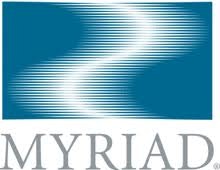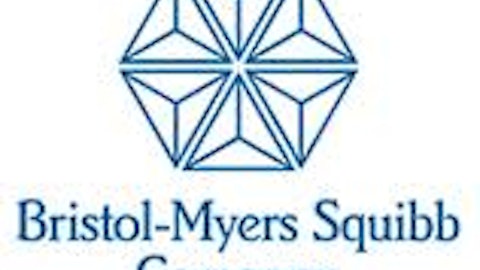
The company’s dependence on the tests in question has given rise to chaos. Is there any chance the company can escape unscathed?
What happened?
Even I didn’t fully understand the details of the case until I took a few hours to wrap my head around some legal jargon and draw a diagram of exactly where the case has been heard since 2009. Nothing like taking a snowy weekend to brush up on your Latin!
How did all of this get started? In May 2009, the Association for Molecular Pathology brought a lawsuit against Myriad Genetics, Inc. (NASDAQ:MYGN), claiming that 15 claims in seven U.S. patents for the company’s BRACAnalysis were invalid.
The first thing for investors to know is that there are two types of claims in question in the case. The first type is a composition-of-matter claim, which pertains to a physical entity such as a strand of DNA. The second type is a method claim, which pertains to the analysis performed in a diagnostic test. A method claim is generally less valuable because it can be invalidated as a series of logical steps, which are better protected as trade secrets, not patents.
Essentially, the plaintiff argued that natural material such as genetic material was patent-ineligible as a product of nature. Although for Myriad Genetics, Inc. (NASDAQ:MYGN), the method claims — the heart of the company’s business model — are arguably more important. What is patentable biologic material? You may not like it, but the United States Patent and Trademark Office, or USPTO, states the following:
“Like other chemical compounds, DNA molecules are eligible for patents when isolated from their natural state and purified, or when synthesized in a laboratory from chemical starting materials. … The courts interpret the statutory term ‘useful’ to require disclosure of at least one available practical benefit to the public.”
The words “isolated” and “purified” are the key to the case. They also mean that, even though nearly 4,000 human genes have been patented, your existence alone does not infringe upon them. You can rest easy now.
The events that followed require the help of a diagram or table. Don’t get too hung up on the details, as the only decision that matters is the one pending from the Supreme Court.
| Date | Court | Decision |
|---|---|---|
| May 12, 2009 | Lawsuit filed in District Court | (Stock up on markers, paper, coffee, etc) |
| March 29, 2010 | District Court of New York | All claims invalid (plaintiff victory) |
| June 16, 2010 | Appeal by Myriad | Granted |
| July 29, 2011 | Court of Appeals (Federal Circuit) | District court overturned, method claims invalid (defendant victory) |
| Dec. 7, 2011 | Petition for Writ of Certiorari (appeal by plaintiff) | Granted (see next) |
| March 26, 2012 | Supreme Court | Vacated Court of Appeals decision, case to be reheard by Case of Appeals |
| Aug. 16, 2012 | Court of Appeals (Federal Circuit) | Identical decision as June 29, 2011 |
| Sept. 25, 2012 | Petition for Writ of Certiorari (appeal by Public Patent Foundation for plaintiff) | Granted (see next) |
| Nov. 30, 2012 | Supreme Court | Agreed to hear second petition, decision pending |
Source: Myriad Genetics.
Why it matters
After bouncing around for nearly four years, the case has worked its way up to the highest court in the land. History shows that the Supreme Court has not been shy to invalidate claims protecting widely used tests. A more complete review of how past decisions may affect Myriad Genetics, Inc. (NASDAQ:MYGN) can be found in Dr. Jeffrey Lefstin’s post on Patentlyo.com.
Should the Supreme Court rule that the method claims in dispute are invalid, it could open the floodgates to dismantle Myriad Genetics’ business model of selling diagnostic tests. The company isn’t the only one holding onto gene patents, though. Depending on the scope of the decision, it is quite possible that patented gene diagnostic tests could go the way of the dodo. Will other companies be affected by the ruling?
Does patent protection really matter?
Despite owning half of all human gene patents (2,000 of 4,000) in the United States, Incyte Corporation (NASDAQ:INCY) will remain insulated from such a decision. The company uses its intellectual property to develop drugs rather than diagnostic tests and has an industry-leading portfolio of JAK inhibitors in development with Eli Lilly & Co. (NYSE:LLY) and Novartis AG (ADR) (NYSE:NVS).
Quest Diagnostics Inc (NYSE:DGX) purchased a swath of gene patents relating to neurological disorders for $740 million in 2011. The acquisition was based upon hundreds of diagnostic tests with patents to boot. Another company that could be in for turbulence is Agilent Technologies Inc. (NYSE:A) , which partnered with Pfizer Inc. (NYSE:PFE) just a few weeks ago to develop companion diagnostics.
But if we take a step back, does the industry really care if a test is patented or not?
Good for the industry?
Depending on your views about the case, you may think that patent protection is necessary for innovation — a line Myriad frequently touts. While one can find reasons to support or debunk that logic, some heavy hitters in the industry believe that growth could accelerate if gene patents were no longer allowed. How? Companies would be free to offer tests for any gene they can find, which would lead to more tests with lower and more competitive pricing for patients.
Quest and Agilent are much larger than Myriad and have diverse revenue streams. The two companies even offer tests not protected by patents that are integral to their businesses. To me, it appears that Myriad is in a much different lifeboat from its peers because of its small size and overdependence on BRACAnalysis. And although Australia recently chose to uphold the BRCA gene patents, it will have no bearing on that of the Supreme Court of the United States.
A worst case scenario would jeopardize close to 80% of the company’s revenue. Of course, the company is trading at a lower price now than it was in 2008 despite doubling revenue and net income. So there could be quite a big pop on any decision in the company’s favor. While it is quite possible that Myriad could survive the Supreme Court, the binary event is much too risky for me. Will you be staking out a position? Let me know in the comments section below.
The article Can Myriad Genetics Survive the Supreme Court? originally appeared on Fool.com and is written by Maxxwell A.R. Chatsko.
Fool contributor Maxx Chatsko has no position in any stocks mentioned. Check out his personal portfolio, his CAPS page, or follow him on Twitter, @BlacknGoldFool, to keep up with his writing on energy, bioprocessing, and emerging technologies.The Motley Fool recommends Quest Diagnostics.
Copyright © 1995 – 2013 The Motley Fool, LLC. All rights reserved. The Motley Fool has a disclosure policy.





